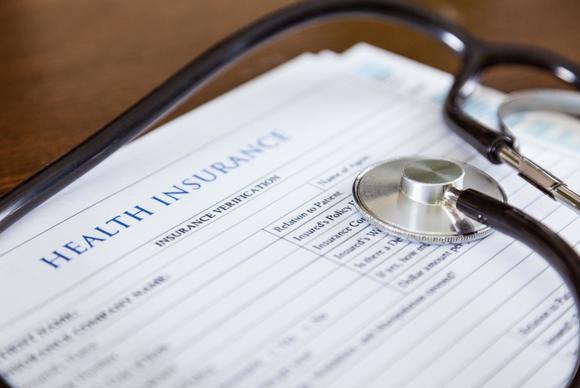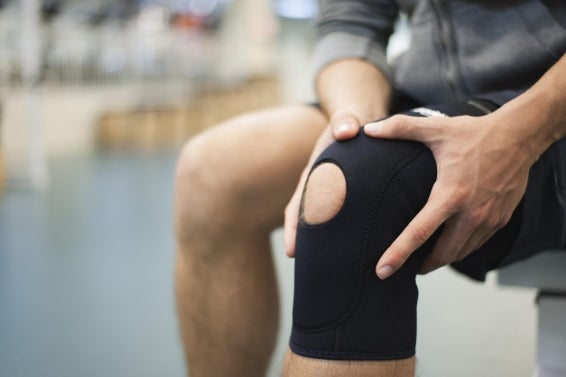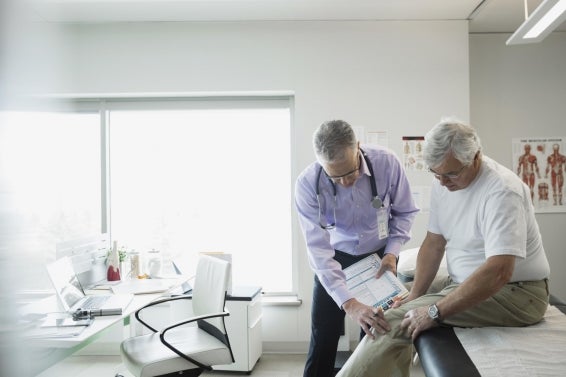View Providers

A Little Planning Goes a Long Way
Proper planning in the days and weeks before knee replacement surgery can make a big difference in your surgical outcome, as well as your long-term health. These steps are recommended to ensure a speedier, safer recovery afterward.

1. Learn What to Expect
A few weeks before surgery, talk through the procedure with your doctor. Note such details as where you'll go and when to arrive, how long the surgery will take, and what type of anesthesia and implant you'll receive. The more you understand, the more psychologically prepared you'll be.

2. Do Your Exercises
Strengthening the muscles around your knees can help your new joint work better, so you get back to your daily activities more quickly. A visit with a physical therapist may help you learn the best moves. Working out also helps you lose weight, which can reduce your risk of complications.

3. Quit Smoking
Tobacco interferes with your body's healing powers. Recovery from surgery will be longer and more difficult if you don't kick the habit. Talk with your doctor or a counselor if you need help putting out your cigarettes.

4. Compile Your Paperwork
As the date of your surgery nears, more people will be asking for your medical information. Compile your insurance information and medical history, and make lists of your allergies, medications, dietary restrictions, and doctors, including contact details. Designate one close confidante who can relay information between the doctor and your friends and family.

5. Figure Out Your Finances
Surgery can be costly—you'll get bills from your surgeon, the hospital, and other doctors, such as the anesthesiologist. Ask your doctor and the hospital about their charges. Contact your insurance company to see how much you'll pay. If you work, check with your employer regarding leave time and disability pay.

6. Manage Your Medications
Some drugs can interfere with the success of your surgery. These include over-the-counter pain relievers like aspirin and ibuprofen (Advil), which prevent your blood from clotting. Prescriptions that suppress your immune system, including methotrexate and Enbrel, increase your risk of infection. Talk with your doctor about possibly stopping some medications beforehand.

7. Keep Your Doctor Informed
Tell your surgeon about any medical conditions you have, including diabetes or heart disease. He or she will want to consult with the doctors who treat you for these issues. Update your medical team if you have health changes—such as a cold, flu, or fever—in the two weeks before surgery.

8. Rearrange Your Space
Take steps to make your home safer and more comfy during recovery. Put things you use frequently within arm's reach. Install grab bars in your bathroom. Secure rugs to avoid tripping. Move your bed to the ground floor. Create a "recovery center" stocked with things like medications, books, and the TV remote.

9. Line Up Helpers
Plan for childcare if needed, and arrange a ride home from the hospital. If possible, ask someone to stay with you for a few days. Having a helpmate will increase your personal safety and boost your peace of mind. Alternatively, inquire with the doctor if you are eligible to recover at a rehabilitation facility after the surgery. If so, be sure to visit the center beforehand to meet the staff and take a tour.

10. Pack a Bag
Put a few items into a kit for your hospital stay. Slippers, a robe, reading materials, glasses or contacts, and a light shirt to wear under your gown will make your stay more pleasant. Also include medications, your insurance card, medical history, and an advance directive spelling out your healthcare wishes. Remember to leave all valuables including jewelry or wristwatch at home.

11. Know the Protocol
Your doctor will give you instructions on what to do the day or night before surgery. Usually, you'll stop eating or drinking six to 12 hours beforehand. You may have some medications to take; if so, swallow them with a small sip of water. Ask questions if anything is unclear.




